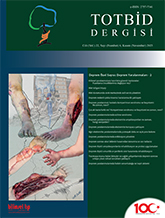
Earthquakes are catastrophic natural disasters that have devastating effects and cause great damage to social life, economy, physical and psychological health and human life. Orthopedic injuries account for the bulk of the injury burden. These are serious injuries that can cause long-term physical impairment, including fractures, amputations, traumatic brain injury, spinal cord injury (SCI) and peripheral nerve injury. Spinal cord injury, which is among the neurological injuries after an earthquake, is a lifelong, medically complex and costly health problem that affects the physical, psychological and social health and well-being of the individual. Among the different types of earthquake-related injuries, peripheral nerve injury (PSY) is one of the most important causes of morbidity and long-term disability. Although these nerve injuries are not life-threatening, they can affect long-term quality of life.